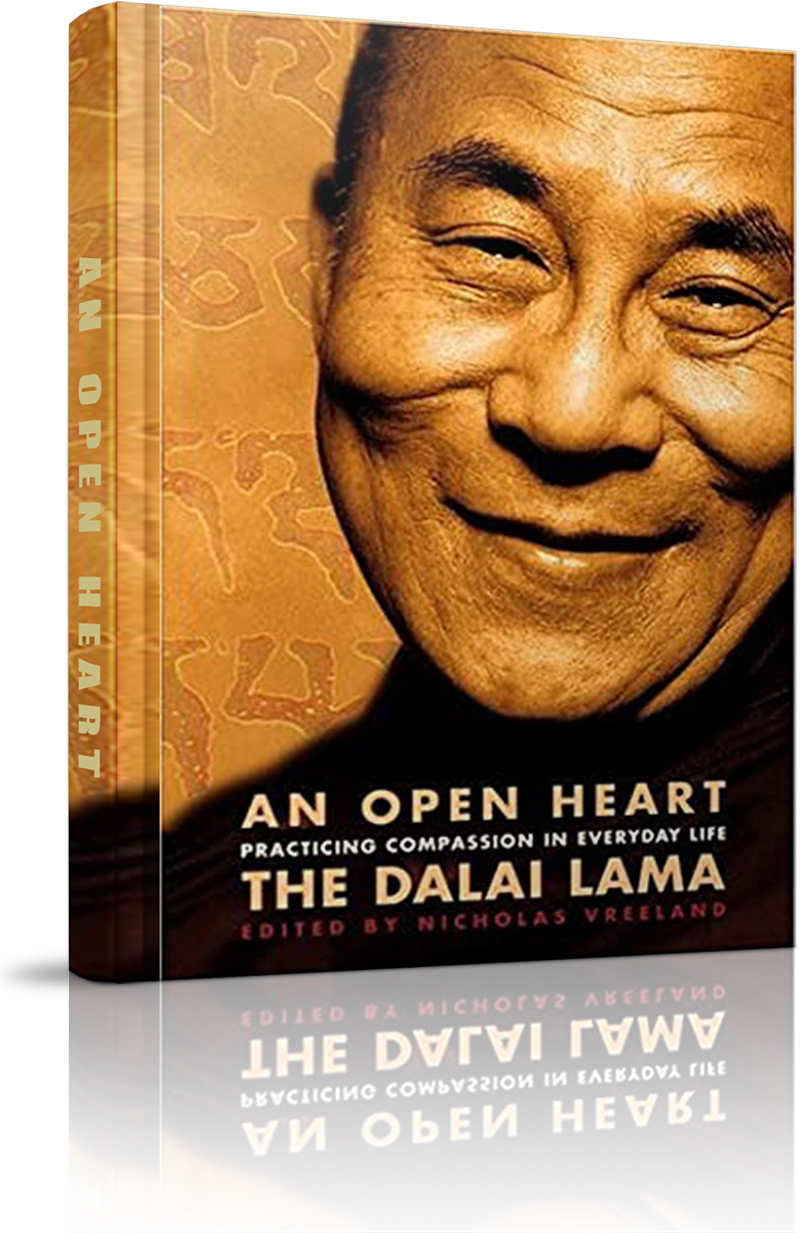Đừng cố trở nên một người thành đạt, tốt hơn nên cố gắng trở thành một người có phẩm giá. (Try not to become a man of success, but rather try to become a man of value.)Albert Einstein
Người ta trói buộc với vợ con, nhà cửa còn hơn cả sự giam cầm nơi lao ngục. Lao ngục còn có hạn kỳ được thả ra, vợ con chẳng thể có lấy một chốc lát xa lìa.Kinh Bốn mươi hai chương
Cơ hội thành công thực sự nằm ở con người chứ không ở công việc. (The real opportunity for success lies within the person and not in the job. )Zig Ziglar
Yêu thương và từ bi là thiết yếu chứ không phải những điều xa xỉ. Không có những phẩm tính này thì nhân loại không thể nào tồn tại. (Love and compassion are necessities, not luxuries. Without them humanity cannot survive.)Đức Đạt-lai Lạt-ma XIV
Những chướng ngại không thể làm cho bạn dừng lại. Nếu gặp phải một bức tường, đừng quay lại và bỏ cuộc, hãy tìm cách trèo lên, vượt qua hoặc đi vòng qua nó. (Obstacles don’t have to stop you. If you run into a wall, don’t turn around and give up. Figure out how to climb it, go through it, or work around it. )Michael Jordon
Kinh nghiệm quá khứ và hy vọng tương lai là những phương tiện giúp ta sống tốt hơn, nhưng bản thân cuộc sống lại chính là hiện tại.Tủ sách Rộng Mở Tâm Hồn
Giữ tâm thanh tịnh, ý chí vững bền thì có thể hiểu thấu lẽ đạo, như lau chùi tấm gương sạch hết dơ bẩn, tự nhiên được sáng trong.Kinh Bốn mươi hai chương
Dễ thay thấy lỗi người, lỗi mình thấy mới khó.Kinh Pháp cú (Kệ số 252)
Chúng ta không học đi bằng những quy tắc mà bằng cách bước đi và vấp ngã. (You don't learn to walk by following rules. You learn by doing, and by falling over. )Richard Branson
Chỉ có một hạnh phúc duy nhất trong cuộc đời này là yêu thương và được yêu thương. (There is only one happiness in this life, to love and be loved.)George Sand
Mạng sống quý giá này có thể chấm dứt bất kỳ lúc nào, nhưng điều kỳ lạ là hầu hết chúng ta đều không thường xuyên nhớ đến điều đó!Tủ sách Rộng Mở Tâm Hồn
Trang chủ »» Danh mục »» SÁCH ANH NGỮ HOẶC SONG NGỮ ANH-VIỆT »» An Open Heart »» Chapter 9: Cultivating equanimity »»
An Open Heart
»» Chapter 9: Cultivating equanimity
 Xem Mục lục
Xem Mục lục  Vietnamese || Đối chiếu song ngữ
Vietnamese || Đối chiếu song ngữ
- none
- Introduction
- Chapter One: The desire for happiness
- Chapter Two: Meditation - A beginning
- Chapter 3: The material and immaterial world
- Chapter 4: Karma
- Chapter 5: The afflictions
- Chapter 6: The vast and the profound: Two aspects of the Path
- Chapter 7: Compassion
- Chapter 8: Meditating on compassion
- »» Chapter 9: Cultivating equanimity
- Chapter 10: Bodhicitta
- Chapter 11: Calm abiding
- Chapter 12: The nine stages of calm abiding meditation
- Chapter 13: Wisdom
- Chapter 14: Buddhahood
- Chapter 15: Generating Bodhicitta
- Afterword (Khyongla Rato and Richard Gere)
- none

Genuine compassion must be unconditional. We must cultivate equanimity in order to transcend any feelings of discrimination and partiality. One way to cultivate equanimity is to contemplate the uncertainty of friendship. First we must consider that there is no assurance that our close friend today will remain a friend forever. Similarly, we can imagine that our dislike for someone will not necessarily continue indefinitely. Such reflections diffuse our strong feelings of partiality, undermining our sense of the immutability of our attachments.
We can also reflect upon the negative consequences of our strong attachment to friends and hostility toward enemies. Our feelings for a friend or a loved one sometimes blind us to certain of his or her aspects. We project a quality of absolute desirability, absolute infallibility, upon that person. Then, when we see something contrary to our projections, we are stunned. We swing from the extreme of love and desire to disappointment, repulsion, and sometimes even anger. Even that sense of inner contentment and satisfaction in a relationship with someone we love can lead to disappointment, frustration, and hatred. Though strong emotions, like those of romantic love or righteous hatred, may feel profoundly compelling, their pleasure is fleeting. From a Buddhist point of view, it is far better not to be in the grip of such emotions in the first place.
What are the repercussions of becoming overpowered by intense dislike? The Tibetan word for hatred, shedang, suggests hostility from the depth of one’s heart. There is a certain irrationality in responding to injustice or harm with hostility. Our hatred has no physical effect on our enemies; it does not harm them. Rather, it is we who suffer the ill consequences of such overwhelming bitterness. It eats us from within. With anger we slowly begin to lose our appetite. We cannot sleep at night and often end up just rolling back and forth, back and forth, all night long. It affects us profoundly, while our enemies continue along, blissfully unaware of the state we have been reduced to.
Free of hatred or anger, we can respond to actions committed against us far more effectively. If we approach things with a cool head, we see the problem more clearly and judge the best way to address it. For example, if a child is doing something that could be dangerous to himself or others, such as playing with matches, we can discipline him. When we behave in such a forthright manner, there is a far greater chance that our actions will hit the mark. The child will respond not to our anger but to our sense of urgency and concern.
This is how we come to see that our true enemy is actually within us. It is our selfishness, our attachment, and our anger that harm us. Our perceived enemy’s ability to inflict harm on us is really quite limited. If someone challenges us and we can muster the inner discipline to resist retaliating, it is possible that no matter what the person has done, those actions do not disturb us. On the other hand, when powerful emotions like extreme anger, hatred, or desire arise, they create disturbance the moment they occur within our minds. They immediately undermine our mental peace and create an opening for unhappiness and suffering to undo the work of our spiritual practice.
As we work at developing equanimity, we can consider that the very notions of enemy and friend are changeable and dependent upon many factors. No one is born our friend or enemy and there isn’t even a guarantee that relatives will remain friends. Friend and enemy are defined in terms of people’s toward us and their treatment of us. Those whom we believe to have affection for us, to love and care for us, we generally regard as friends and loved ones. Those whom we believe to have ill will and harmful intentions toward us are our enemies. We therefore view people as friends or enemies based on our perception of the thoughts and emotions they harbor toward us. So, nobody is essentially our friend or essentially our enemy.
We often confuse the actions of a person with the actual person. This habit leads us to conclude that because of a particular action or statement, a person is our enemy. Yet people are neutral. They are neither friend nor enemy, Buddhist nor Christian, Chinese nor Tibetan. As a result of circumstances, the person we hold in our sights could change and become our closest friend. The thought “Oh, you used to be so mean to me in the past, but now we are such good friends” is not inconceivable.
Another way of cultivating equanimity and transcending our feelings of partiality and discrimination is to reflect upon how we are all equal in our aspiration to be happy and overcome suffering. Additionally, we all feel that we have a basic right to fulfill this aspiration.
How do we justify this right? Very simply, it is part of our fundamental nature. I am not unique; I have no special privilege. You are not unique, nor do you hold special privileges. My aspiration to be happy and overcome suffering is part of my fundamental nature, as it is part of yours. If this is so, then just as we do, all others have the right to be happy and overcome suffering, simply because they share this fundamental nature. It is on the basis of this equality that we develop equanimity toward all. In our meditation we must work at cultivating the attitude that “just as I myself have the desire to be happy and overcome suffering, so do all others, and just as I have the natural right to fulfill this aspiration, so do all others.” We should repeat this thought as we meditate and as we go about our lives, until it sinks deep into our awareness.
There is one last consideration. As human beings, our well-being very much depends upon that of others, and our very survival is a result of contributions made by many, many beings. Our birth is dependent upon our parents. We then need their care and affection for a number of years. Our livelihood, our dwelling, our sustenance, even our success and fame, are the result of contributions made by innumerable fellow human beings. Whether directly or indirectly, countless others are involved in our survival - not to mention our happiness.
If we extend this line of reasoning beyond the confines of a single lifetime, we can imagine that throughout our previous lives - in fact, since time without beginning - countless others have made innumerable contributions to our welfare. We conclude, “What grounds have I to discriminate? How can I be close to some and hostile toward others? I must rise above all feelings of partiality and discrimination. I must be of benefit to all, equally!”
MEDITATION FOR EQUANIMITY
How do we train our minds to perceive the essential equality of all living beings? It is best to cultivate the feeling of equanimity by first focusing on relative strangers or acquaintances, those for whom you have no strong feeling one way or the other. From there you should meditate impartially, moving on to friends and then enemies. Upon achieving an impartial attitude toward all sentient beings, you should meditate on love, the wish that they find the happiness they seek.
The seed of compassion will grow if you plant it in fertile soil, a consciousness moistened with love. When you have watered your mind with love, you can begin to meditate upon compassion. Compassion, here, is simply the wish that all sentient beings be free of suffering.
MUA THỈNH KINH SÁCH PHẬT HỌC
DO NXB LIÊN PHẬT HỘI PHÁT HÀNH
Mua sách qua Amazon sẽ được gửi đến tận nhà - trên toàn nước Mỹ, Canada, Âu châu và Úc châu.
Quý vị đang truy cập từ IP 216.73.216.34 và chưa ghi danh hoặc đăng nhập trên máy tính này. Nếu là thành viên, quý vị chỉ cần đăng nhập một lần duy nhất trên thiết bị truy cập, bằng email và mật khẩu đã chọn.
Chúng tôi khuyến khích việc ghi danh thành viên ,để thuận tiện trong việc chia sẻ thông tin, chia sẻ kinh nghiệm sống giữa các thành viên, đồng thời quý vị cũng sẽ nhận được sự hỗ trợ kỹ thuật từ Ban Quản Trị trong quá trình sử dụng website này.
Việc ghi danh là hoàn toàn miễn phí và tự nguyện.
Ghi danh hoặc đăng nhập
... ...


 Trang chủ
Trang chủ










